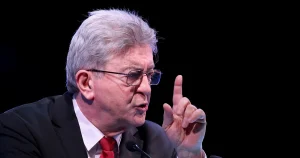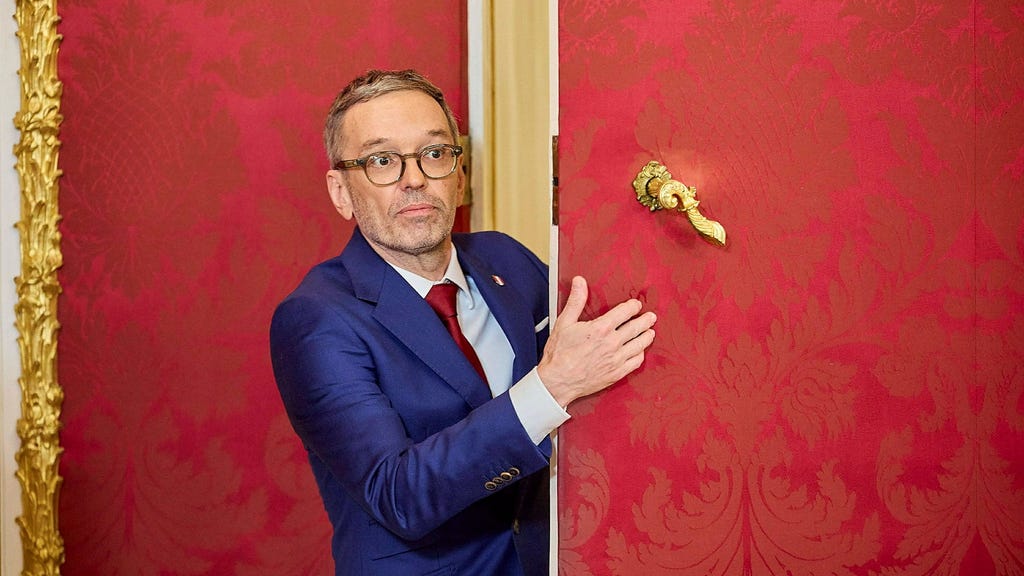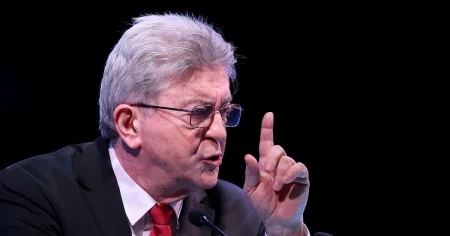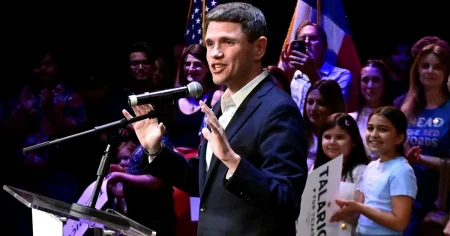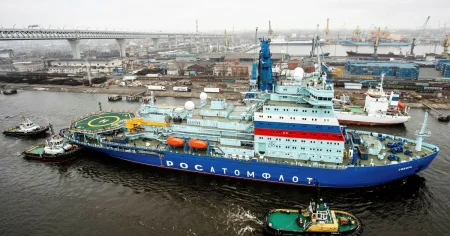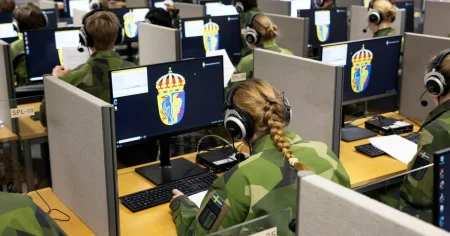The political landscape of Austria is undergoing a significant shift, marked by the rise of the far-right Freedom Party (FPÖ) and its leader, Herbert Kickl. Despite concerted efforts by established parties to exclude him from power, Kickl has been tasked with forming a new government, a development that has sparked concern and debate both within Austria and across Europe, particularly in Germany. This situation arises after protracted negotiations between the Christian Democrats (ÖVP), Social Democrats, and liberal Neos failed to produce a coalition agreement, primarily due to their insistence on excluding Kickl from any potential government. The liberals ultimately abandoned the talks, effectively paving the way for Kickl’s ascent. This turn of events is being closely watched by German political observers who are wary of a similar trajectory for the far-right Alternative for Germany (AfD) in their own country.
The prospect of Kickl as Chancellor marks a significant normalization of far-right leadership in Europe. While not entirely unprecedented, given the presence of Giorgia Meloni in Italy, it reinforces a growing trend of far-right parties gaining mainstream acceptance and accessing positions of power. Kickl’s previous tenure as Interior Minister offered a preview of his potential policies, including a hardline stance on immigration, exemplified by his renaming of asylum reception centers to ”departure centers.” His leadership also potentially strengthens the pro-Russian bloc within the EU, alongside figures like Viktor Orbán of Hungary and Robert Fico of Slovakia, which could further complicate the EU’s response to the ongoing war in Ukraine. This alignment raises concerns about a potential push for a premature peace settlement, even if it comes at the expense of favorable terms for Ukraine.
The situation in Austria reflects the country’s deep political paralysis and economic struggles. Since September, Austria has been without a stable government, and the failed negotiations have only prolonged the uncertainty. Kickl faces immense pressure to succeed in forming a government, as failure would likely trigger snap elections, further extending the political limbo and leaving Austria under a caretaker government for an extended period. The urgency of the situation underlines the significant consequences of the political impasse.
The international response to Kickl’s potential chancellorship is complex, particularly within the EU. While Austria faced international criticism in 1999 when the FPÖ first entered government, the current political landscape presents a different scenario. Given the acceptance of Meloni in Italy, a similar boycott of Kickl seems unlikely, highlighting a shift in European politics and the increasing normalization of far-right participation in government. This acceptance raises questions about the future direction of European politics and the potential implications for policy across the continent.
The rise of Kickl and the FPÖ is not merely an Austrian phenomenon but reflects broader trends within Europe. The increasing popularity of far-right parties, fueled by economic anxieties, immigration concerns, and a growing disillusionment with traditional politics, presents a significant challenge to the established political order. The normalization of far-right leaders like Kickl raises concerns about the potential erosion of democratic norms, the rise of nationalist sentiment, and the future direction of European integration. The Austrian case serves as a microcosm of these broader challenges, offering a glimpse into the potential future of European politics.
The situation in Austria underscores the complex and evolving dynamics of European politics in the 21st century. The rise of far-right parties, the normalization of their leaders, and the challenges posed to established political norms are not isolated incidents but reflect a broader trend. The Austrian case, with its political paralysis, economic struggles, and the potential for a far-right chancellor, provides a stark example of these challenges and the potential consequences for the future of Europe. The outcome of the government formation process in Austria will have far-reaching implications, both domestically and internationally, and will be closely watched by political observers across the continent.


